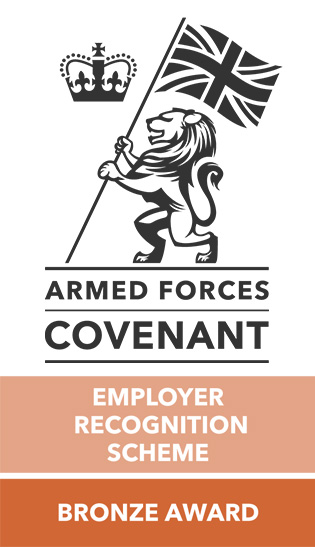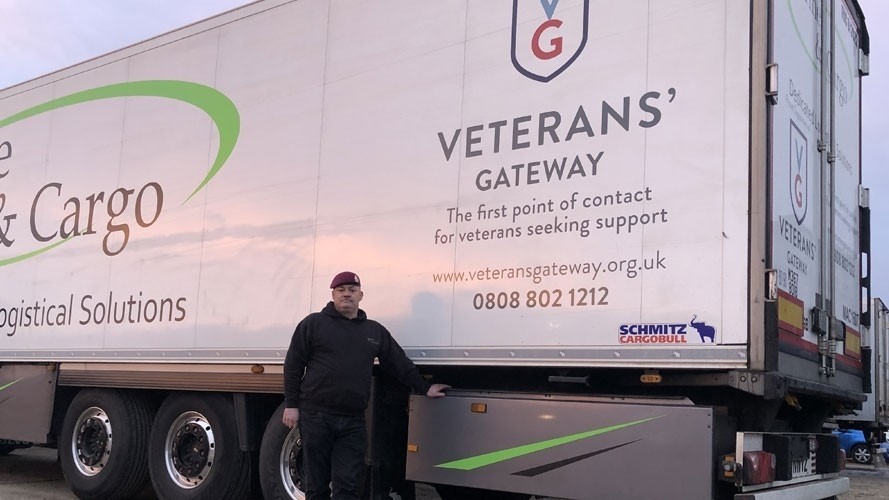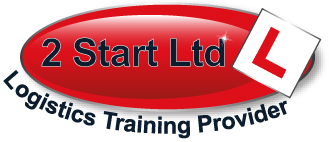Road Transport Driving: Licences and Qualifications
Leaving the British Armed Forces is a major life transition, but the UK’s road transport industry continues to provide a wide range of opportunities for Service Leavers. With demand for skilled drivers across logistics, freight, passenger transport, and specialist sectors, this field offers long-term stability, competitive pay, and clear career progression.
The industry is adapting to modern challenges—driver shortages, new safety standards, environmental targets, and the adoption of electric and low-emission vehicles—making it an exciting and future-focused sector to join.
What is Road Transport Driving?
Road transport driving covers a wide range of roles essential to keeping the UK’s supply chains and communities moving. From moving goods across the country in heavy goods vehicles (HGVs), to operating buses and coaches for passenger transport, to driving specialist vehicles in construction or emergency services, the industry is a backbone of the UK economy.
In 2025, the sector is more varied than ever. It includes:
- Logistics and Freight – transporting goods nationally and internationally, with increasing use of digital route planning and telematics.
- Public Transport – bus and coach driving remains in high demand, with operators investing in electric and low-emission fleets.
- Specialist Vehicles – from refuse collection to recovery trucks and hazardous goods transport, these roles require advanced skills and training.
- Last-Mile Delivery – the rise of e-commerce means van and light goods vehicle (LGV) drivers are a growing part of the workforce.
For Service Leavers, many of these roles are a natural progression. Experience in disciplined driving, route planning, and operating military vehicles translates directly into civilian qualifications and career pathways.
What opportunities are there for me in the road transport industry?
- Road Freight Transport: As a Large Goods Vehicle (LGV) or Heavy Goods Vehicle (HGV) driver, you’ll be responsible for transporting goods across the country or internationally. The logistics and delivery sectors are rapidly expanding due to the increase in e-commerce and supply chain demands.
- Passenger Transport: Coach and bus drivers play a critical role in public transportation, ensuring passengers reach their destinations safely and efficiently. This sector is ideal for those who enjoy interacting with the public and maintaining schedules.
- Van Driving: Van drivers are essential for last-mile deliveries, courier services, and small-scale logistics, often working with smaller businesses or on specific delivery routes.
- Chauffeur and Private Hire: Chauffeurs and private hire drivers cater to clients seeking comfort, privacy, and premium service. This is a great option for those who enjoy providing a personalized driving experience.
- Taxi Drivers and Private Hire: Taxi drivers work locally, transporting passengers for short distances. With the rise of app-based services like Uber, private hire driving has become a flexible and profitable career.
- Carriage of Dangerous Goods (ADR): For those interested in more specialized driving roles, transporting dangerous goods requires specific training and certification. This role involves the safe transport of hazardous materials and offers unique opportunities in sectors like chemicals and fuel.
GOVERNMENT TAKES STEPS TO TACKLE HGV DRIVER SHORTAGE
The government is introducing measures including the following, in an attempt to tackle the current shortage of HGV drivers:
- up to 4,000 people will be trained as new HGV drivers to help tackle skills shortages and support more people to launch careers within the logistics sector
- package of measures includes using MoD examiners to help increase immediate HGV testing capacity
- nearly 1 million letters to be sent to all drivers who currently hold an HGV driving licence, encouraging them back into the industry.
Click here to find out more.
Transferable skills
The Defence School of Transport (DST) remains the world’s largest residential driver training school, delivering more than 150 specialist courses to Army, RAF, and Royal Marines personnel. Its Driver Training Squadron (DTS) provides foundation and progressive licence acquisition, covering common civilian categories such as B, C, CE, D, and D1. These programmes are designed with vocational outcomes in mind, ensuring Service personnel graduate with civilian-recognised qualifications that carry weight in the road transport industry.
In addition, many DST courses embed apprenticeships and nationally accredited qualifications, making it easier for Service Leavers to transfer directly into commercial driving roles. With a national shortage of HGV and passenger service drivers still evident in 2025, the conversion process for military licences into civilian standards has been streamlined, helping ex-Forces personnel quickly secure employment.
When preparing for resettlement, training is accessible through providers such as the Career Transition Partnership (CTP), as well as independent training organisations—many of which are ELCAS-approved, allowing you to offset the cost of further driver training or management qualifications.
Alongside licences and qualifications, your Armed Forces background equips you with highly transferable skills that employers in the transport sector value:
- Discipline and Responsibility – Military training emphasises professionalism, focus, and safety protocols, all vital when operating large vehicles in public environments.
- Navigation and Time Management – Experience planning and executing routes under pressure directly translates to commercial logistics and passenger transport, where schedules are critical.
- Vehicle Maintenance and Care – Many Service roles involve first-line maintenance and safety checks, skills that help ensure roadworthiness and compliance in civilian fleets.
- Communication and Customer Service – Whether driving an HGV, bus, or coach, clear communication and professionalism with colleagues, clients, and the public enhances both safety and service quality.
- Leadership and Problem-Solving – The ability to take initiative, manage risks, and adapt to changing circumstances makes Service Leavers ideal candidates for supervisory or logistics management roles.
Together, these skills mean that Armed Forces personnel often have a head start when moving into road transport careers, with many employers actively seeking out veterans for their reliability and adaptability.
Driver CPC and Armed Forces drivers
The Driver Certificate of Professional Competence (CPC) is a legal requirement for most professional drivers of large goods vehicles (LGVs) and passenger-carrying vehicles (PCVs) in the UK. It ensures that drivers maintain high standards of safety and professionalism on the road.
For Armed Forces personnel, there is good news: your military driving experience can reduce what you need to complete when transitioning into civilian roles.
- Exemptions: If you hold a military driving licence, you may be exempt from the initial Driver CPC qualification (the four-part test covering theory, case studies, practical driving, and practical demonstration). Instead, you may only need to complete periodic CPC training.
- Periodic Training: This involves 35 hours of approved training every five years to keep your Driver CPC valid. The training can be taken in blocks or split across shorter sessions, and many courses are available through ELCAS-approved providers.
- Checking Eligibility: Exemptions are not automatic. It’s essential to confirm your status with the Driver and Vehicle Standards Agency (DVSA) or your training provider, as the requirements depend on the specific military licences you hold and the categories you plan to drive commercially.
- Recognition of Military Experience: In 2025, the DVSA continues to encourage Service Leavers to make use of their military-acquired driving skills to ease the transition into civilian logistics and passenger transport roles.
How do I qualify to become a professional driver?
To become a commercial driver in the UK, you must hold the appropriate driving licence and complete any necessary certifications. Here’s how to get started:
- Driving Licence: First, ensure you have the correct driving licence for the vehicle class you wish to operate. If you don’t already have the relevant licence, you’ll need to undergo training and pass the necessary driving tests.
- Driver CPC: If you’re driving vehicles over 3.5 tonnes or passenger vehicles with nine or more seats for hire or reward, you’ll need to complete CPC training and obtain a Driver CPC qualification.
- Specialized Certifications: Depending on your role (e.g., ADR for dangerous goods), you may need additional certifications.
- Medical Requirements: All professional drivers must pass a DVLA Group 2 medical, confirming fitness to drive larger vehicles. This is typically renewed at age 45 and then every 5 years until 65, and annually thereafter.
Click here for full information.
Road freight transport driving
Road freight is one of the UK’s largest industries, with strong demand for qualified LGV/HGV drivers to move goods across the country and into Europe. For Service Leavers holding military licences, the transition is straightforward, though you’ll need a valid Driver CPC and, in some cases, extra qualifications such as ADR for hazardous goods or training for refrigerated transport. With a continuing driver shortage in 2025, opportunities are plentiful and salaries remain competitive.
Fact File
VEHICLE LICENSING CATEGORIES
The basic commercial large goods vehicle licence categories are as follows:
Medium-sized vehicles
- Category C1 – you can drive vehicles between 3,500 and 7,500kg, with a trailer up to 750kg
- Category C1E – you can drive C1 category vehicles, with a trailer over 750kg
Large vehicles
- Category C – you can drive vehicles over 3,500kg, with a trailer up to 750kg
- Category CE – you can drive category C vehicles, with a trailer over 750kg
Minibuses
- Category D1 – you can drive vehicles with: no more than 16 passenger seats, a maximum length of 8m, a trailer up to 750kg
- Category D1E – you can drive D1 category vehicles with a trailer over 750kg
Buses
- Category D – you can drive any bus with more than 8 passenger seats, with a trailer up to 750kg
- Category DE – you can drive D category vehicles with a trailer over 750kg
Click here for full information.
The LGV Certificate of Professional Competence (CPC)
The LGV Driver CPC is essential for anyone driving large goods vehicles professionally in the UK or abroad. It combines theory tests, practical assessments, and 35 hours of periodic training every five years to keep drivers safe, competent, and compliant with industry regulations. Whether working nationally or internationally, holding a valid CPC is a legal requirement for LGV drivers.
Passenger transport: coach and bus driving
To become a bus or coach driver, you’ll need a Passenger Carrying Vehicle (PCV) licence and a valid Driver CPC. Bus drivers typically work on local routes, while coach drivers often cover long-distance or international journeys. With ongoing investment in electric and low-emission fleets in 2025, demand for qualified drivers remains high, and strong customer service and time management skills are essential for ensuring safe and reliable passenger transport.
Find out more
Click here for full information on becoming a qualified professional lorry or bus/coach driver.
HOW TO GET – AND KEEP – FULL DRIVER CPC
- Apply for a provisional lorry or bus licence.
- Pass the four tests that make up Driver CPC to qualify.
- Take 35 hours of periodic training every five years to stay qualified.
- Sign a declaration every five years until you’re 45 to show you still meet the medical standards.
- Provide a medical report every five years after you’re 45 to renew your driving licence – you need to do this every year when you reach 65.
To find out more, click here
Van driving
Van driving is a popular entry point into the transport industry, especially for last-mile deliveries in the growing e-commerce sector. Most roles only require a Category B licence, though additional training—such as Driver CPC, safe loading courses, or specialist handling for high-value and sensitive goods—can improve employability. With flexible hours and nationwide demand in 2025, van driving offers an accessible and reliable career option for Service Leavers.
Chauffeurs
Chauffeuring offers a more personalised career path, providing premium transport for private clients, executives, or organisations. A Category B licence is required, but additional training in advanced driving, customer service, defensive driving, and professional etiquette can set you apart. In 2025, demand remains steady in corporate, hospitality, and events sectors, with opportunities for both employed and self-employed chauffeurs.
Taxi drivers and private hire
To work as a taxi or private hire driver in the UK, you’ll need a Taxi or Private Hire Licence from your local authority, alongside a Category B licence. Requirements vary by region and may include medical checks, background checks, and local knowledge or topographical tests. With the continued rise of app-based platforms such as Uber, Bolt, and Ola, private hire driving offers flexible hours and strong earning potential, making it a popular choice for Service Leavers seeking independent or part-time work.
Carriage of dangerous goods
Transporting hazardous materials such as fuel, chemicals, or explosives requires an ADR certificate, which covers the safe handling and movement of dangerous goods. This qualification is essential for specialist roles in industries like fuel delivery, chemical transport, and waste management. Many Service Leavers already have relevant military experience in this area, making it a natural progression with the right civilian training. ADR training is widely available through accredited providers and can often be funded via ELCAS.
Use your ELC
Under the ELC scheme, a wide range of learning can be taken, provided it is offered by an approved provider listed on the ELCAS website and is at level 3 or above. For full details of how to make the most of your ELC, refer to the in-depth features elsewhere on the Quest website
Finding a job
The UK road transport sector continues to face a shortage of qualified drivers, creating strong opportunities for Service Leavers. To secure your next role:
- Veteran Pathways – Use the Career Transition Partnership (CTP) and veteran-focused recruitment programmes, as many logistics firms actively seek ex-Forces personnel.
- Specialist Agencies – Register with agencies focused on transport and logistics, which have direct links to employers across freight, passenger, and specialist sectors.
- Networking – Attend industry events or join professional bodies such as the Chartered Institute of Logistics and Transport (CILT UK) to connect with employers and peers.
- Online Portals – Search mainstream job sites (Indeed, Totaljobs, Reed) and transport-focused boards like Logistics Job Shop or DrivingJobs.co.uk.
With demand still high in 2025, qualified drivers often find roles quickly—particularly in HGV, bus and coach, and last-mile delivery.
ROAD TRANSPORT DRIVING APPRENTICESHIPS
A huge number of employers run apprenticeship programmes, so there’s plenty of choice for those starting out. Opportunities exist in haulage, passenger transport operations, passenger transport driving, supply chain practice and more. Apprenticeships range from level 2 all the way up to degree level. Use your favourite search engine to find out more, or click here to read about government-backed programmes.
For information about related careers in logistics and distribution, take a look at our feature here
For those leaving the Armed Forces, the road transport industry offers a range of career paths, from freight and logistics to passenger transport and private hire. With the right qualifications, including the Driver CPC, LGV/HGV licences, and specialized certifications, you can transition smoothly into a rewarding career. Make sure to use your military experience and ELC benefits to gain the necessary training, and take advantage of the many resources available to veterans to secure a job in this growing industry.
Useful Info
Logistics UK
Road Haulage Association (RHA)
For further general information, go to www.gov.uk and search under ‘Driving and transport’ / ‘HGV, bus and coach drivers’
Case Study
Transitioning into the transport sector: Ian M. Crome’s story
Final Rank: Cadet C/Sg
Time Served:5 Years
As you may have read elsewhere on the Quest website, Veterans’ Gateway recently introduced its first ever branded truck, kindly sponsored by international haulage business, Marine & Cargo, which…














